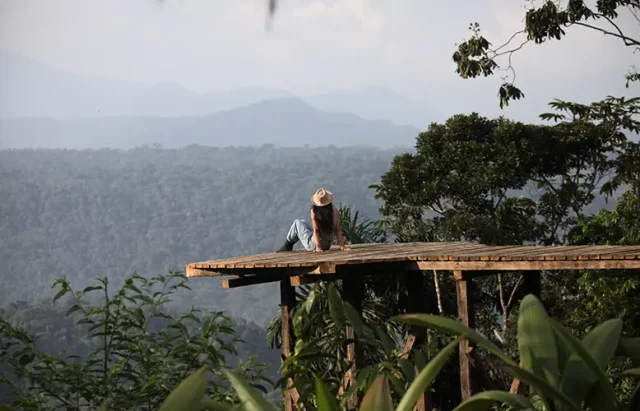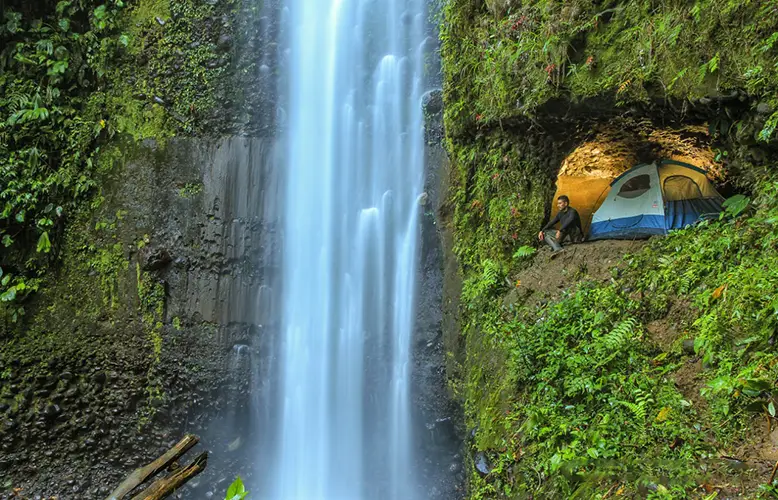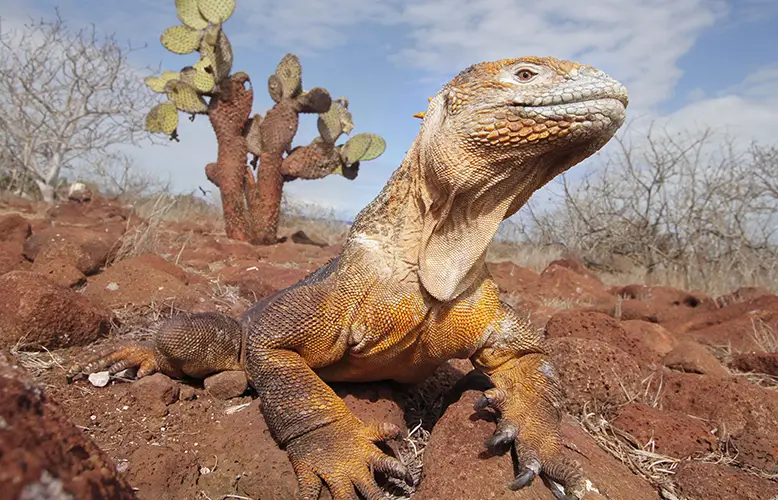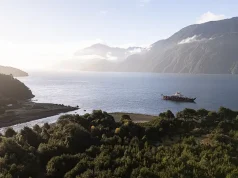
Travelers are invited to explore Ecuador’s breathtaking natural beauty and vibrant ecosystems. Sustainable travel is essential in today’s world, promoting responsible exploration of our planet while honoring local communities and protecting the environment. Ecuador has 14 nature reserves, 11 national parks, a wildlife refuge, and several natural heritage sites. Altogether, the country protects over 466,000 hectares of land (roughly the size of Rhode Island in the U.S.) and proudly safeguards 97% of the Galapagos Islands through its commitment to conservation. In the Galapagos, most of the land (18.94 million acres) is designated as a national park, limiting human activity to just 3% of the islands’ area. The surrounding Galapagos Marine Reserve, one of the largest in the world, protects over 51, 000 square kilometers of ocean, preserving the unique ecosystems for generations to come. These strict conservation measures ensure that the rich biodiversity and local communities are protected, with tourism carefully regulated to maintain ecological balance.

Sustainable Experiences in Ecuador
In the Pacific Coast, Ecuador showcases its commitment to sustainable tourism through stunning beaches like Los Frailes and Ayampe. Los Frailes Beach, located within Machalilla National Park in Manabí, spans three kilometers and is recognized for its pristine condition, earning the title of “Cleanest Beaches” at the 2015 Tourism Quality Awards. This beach is managed collaboratively by the Ministry of Environment and the community association ASOPROAFRAILES, exemplifying successful environmental stewardship. Nearby, Ayampe Beach also attracts surfers and international tourists, boasting a well-maintained three-kilometer stretch. The beach is managed by the Ayampe Municipality and the Decentralized Autonomous Government of Puerto López, which emphasizes conservation and sustainable practices, ensuring its protection for future generations. Together these beaches provide unforgettable experiences that respect nature while fostering local communities.
In the Amazon, Aguarico is recognized as one of the Best Tourism Villages by the UNWTO initiative, which highlights the importance of tourism and showcases the unique landscapes, cultures, and biodiversity of rural communities. This canton, located within the Orellano province, is characterized by its numerous lagoons within Yasuní National Park and the Cuyabeno Wildlife Reserve and actively supports community tourism through the Sacha Ñampi and YakuWarmi Community Tourism Centers. Visitors can engage with the rich cultural traditions of the Kichwa and Waorani peoples, participating in activities such as blowgun games, traditional dances, and crafting with natural fibers. These eco-tours not only showcase the vibrant biodiversity of the Amazon but also ensure that tourism benefits local communities while maintaining the delicate balance of the environment.

In the Andes, Cotopaxi National Park is renowned for housing one of the world’s highest active volcanoes, reaching nearly 6,000 meters. Visitors are drawn to its stunning views of the Avenue of Volcanoes and diverse ecosystems, which include humid mountain forests and the unique páramo landscape, characterized by high-altitude grasses and shrubs. The park offers a variety of thrilling activities such as responsible hiking, mountaineering, mountain biking, and horseback riding, catering to adventure enthusiasts while emphasizing environmental preservation. The best time to visit this remarkable region is from December to April, making it a must-see for eco-conscious travelers in Ecuador.
Nearby, the culturally rich town of Angochagua is recognized as one of the Best Tourism Villages by the UNWTO for its sustainable tourism practices and the preservation of the ancestral knowledge of the Caranqui people. Visitors can immerse themselves in the local culture by learning about the Quichua language, exploring traditional medicinal practices, and savoring local gastronomy that features unique native ingredients. Additionally, a trip to Mindo is essential, as it is one of the largest cloud forests globally, offering unparalleled biodiversity. Located about two hours from Quito, Mindo invites exploration with activities like birdwatching, hiking to waterfalls, and indulging in world-class chocolate at local factories. This combination of cultural richness and natural beauty makes these destinations ideal for eco-conscious travelers seeking immersive experiences in Ecuador.

The Galapagos Islands, a UNESCO World Heritage site, are renowned for their exceptional biodiversity and conservation initiatives. Located about 1,000 kilometers off the coast of Ecuador, this archipelago is home to unique wildlife, including giant tortoises, blue-footed boobies, and marine iguanas. Travelers can engage in various eco-tours that allow for immersive experiences, such as hiking trails like the Sierra Negra Volcano on Isabela Island, where visitors can encounter the fascinating species that inspired Charles Darwin’s theory of evolution.
For those interested in underwater exploration, snorkeling and scuba diving are essential activities in the crystal-clear waters of the Galapagos, offering encounters with sea turtles, sea lions, and various shark species. Island hopping provides opportunities to explore the distinct landscapes and ecosystems of the archipelago, while participating in local conservation projects helps visitors understand the ongoing efforts to protect this fragile environment. Together, these activities allow travelers to appreciate and contribute to the preservation of one of the planet’s most biodiverse ecosystems.
By minimizing environmental impact, fostering cultural understanding, and generating financial support for conservation efforts, travelers can create enriching experiences for both them and the communities they engage with. Embracing sustainable tourism is not merely an option; it is a vital commitment to fostering a more responsible and equitable global tourism industry. Travelers seeking more information can visit https://ecuador.travel.





